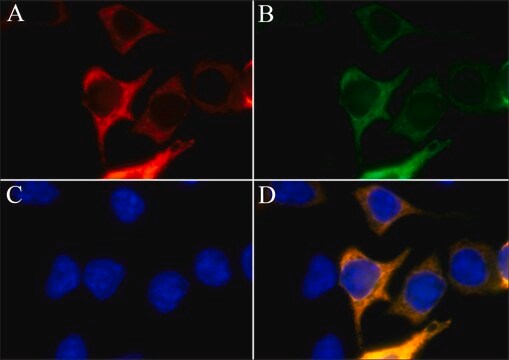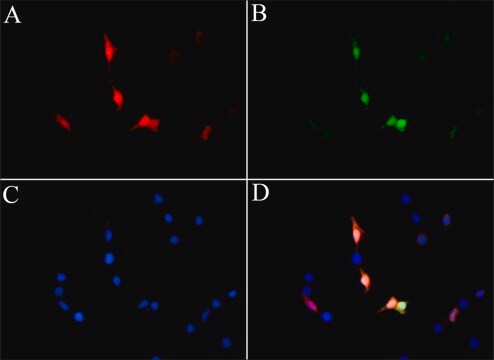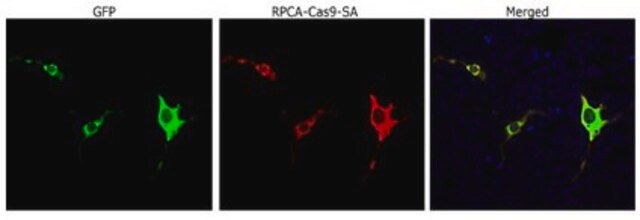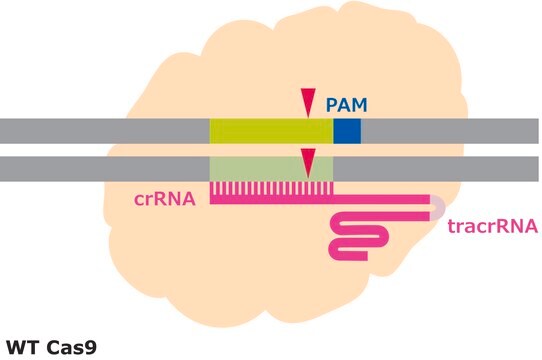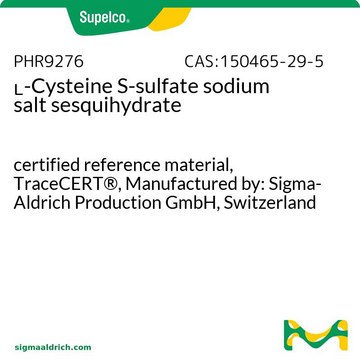MABE1823
Anti-AsCpf1 Antibody, clone 3D3-F7
clone 3D3-F7, from mouse
Synonym(e):
EC 3.1.27.2, AsCpf1, CRISPR-associated endonuclease Cpf1
About This Item
Empfohlene Produkte
Biologische Quelle
mouse
Antikörperform
purified immunoglobulin
Antikörper-Produkttyp
primary antibodies
Klon
3D3-F7, monoclonal
Speziesreaktivität
bacteria, Acidaminococcus
Verpackung
antibody small pack of 25 μg
Methode(n)
western blot: suitable
Isotyp
IgG2aκ
UniProt-Hinterlegungsnummer
Posttranslationale Modifikation Target
unmodified
Verwandte Kategorien
Allgemeine Beschreibung
Spezifität
Immunogen
Anwendung
Epigenetik & nukleäre Funktionen
Qualität
Western Blotting Analysis: 1 µg/mL of this antibody detected AsCpf1 in lysate from HEK293 cells expressing HA-tagged AsCpf1.
Zielbeschreibung
Physikalische Form
Lagerung und Haltbarkeit
Sonstige Hinweise
Haftungsausschluss
Sie haben nicht das passende Produkt gefunden?
Probieren Sie unser Produkt-Auswahlhilfe. aus.
Analysenzertifikate (COA)
Suchen Sie nach Analysenzertifikate (COA), indem Sie die Lot-/Chargennummer des Produkts eingeben. Lot- und Chargennummern sind auf dem Produktetikett hinter den Wörtern ‘Lot’ oder ‘Batch’ (Lot oder Charge) zu finden.
Besitzen Sie dieses Produkt bereits?
In der Dokumentenbibliothek finden Sie die Dokumentation zu den Produkten, die Sie kürzlich erworben haben.
Unser Team von Wissenschaftlern verfügt über Erfahrung in allen Forschungsbereichen einschließlich Life Science, Materialwissenschaften, chemischer Synthese, Chromatographie, Analytik und vielen mehr..
Setzen Sie sich mit dem technischen Dienst in Verbindung.
